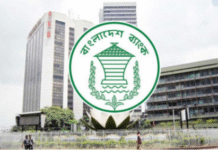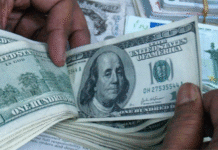Garment exports may face more competition from Vietnam, experts say

Bangladesh has not shown any interest in joining the world’s largest trade deal, Regional Comprehensive Economic Partnership (RCEP) primarily to safeguard its revenue generation from duties on imports.
On the other hand, none of the would-be RCEP signatories asked Bangladesh to join their ranks.
The RCEP is going to be signed today at the end of a summit of the Association of Southeast Asian Nations (Asean).
China initiated the RCEP as a free trade agreement among itself, the 10 Asean states and Australia, India, Japan, South Korea and New Zealand. The negotiations were formally launched at an Asean summit in Cambodia in November 2012.
“We did not join the RCEP. We have not shown interest in joining the deal although we knew about it.
She had been serving, until very recently, as the in-charge of the ministry’s Free Trade Agreement (FTA) wing.
Khan presumes there would not be any major negative impact on Bangladesh’s export even if Bangladesh is not part of the deal.
Because Asian markets are major sources for Bangladesh’s imports, not exports, she said.
Echoing Khan’s views was Md Shafiqul Islam, who recently retired from the commerce ministry and was in charge of the FTA wing as an additional secretary.
He also reasoned Bangladesh’s disinterest it signing the deal for the plausible drastic drop in revenue generation from import duty.
Islam also affirmed that Bangladesh was not invited to join the deal.
India withdrew itself from the list of signatories considering the fate of its domestic industries, because there is a possibility of the invasion of Chinese goods in Indian markets, he said. Moreover, Bangladesh does not have that much of an experience in FTAs with any country till date. “So, how will it handle such a big trade deal where the interests of the domestic industries are very much involved?” he asked.
“We are very much protectionists in international trade compared with other countries. So, it was not possible to place a proposal to join the platform.”
“It is not like that we will get the benefit from other countries without giving benefit to them,” Islam told The Daily Star over the phone.
Commerce Secretary Md Jafar Uddin also said the Asian region, especially China, was the largest area from where Bangladesh sourced its imports. For instance, Bangladesh earns nearly Tk 25,000 crore in a year as duty on imports solely from China.

So, the government’s major earnings are generated from the duties on imports from Asian nations, he said.
Moreover, Bangladesh did not show interest in joining the deal since it has already been enjoying duty benefits to Chinese markets as both a least developed country (LDC) and also under the Asia Pacific Trade Agreement (APTA).
Furthermore, midway through the current year, the Chinese government offered duty-free access to 97 per cent of goods originating in Bangladesh, for which there was no need to join such a trade group.
The Chinese trade benefits for Bangladesh will continue under the APTA even after the country graduates to become a developing nation in 2024.
“Still we have taken an initiative to conduct a study on the impacts on Bangladesh from the signing of the RCEP,” Jafar Uddin told The Daily Star over the phone.
Md Hafizur Rahman, director general of the World Trade Organisation (WTO) cell under the commerce ministry, said Bangladesh did not even participate in the initial negotiations to join the RCEP.
The possibility of Bangladesh joining the RCEP is very thin now as the participating countries are ready to sign the final deal, he said.
He said Bangladesh has been negotiating with Asean-plus-one in mind, that is, to be included in the club of the Asean.
Ahsan H Mansur, executive director of the Policy Research Institute, said Bangladesh should join such regional trade deals and also sign FTAs with major trading partners soon to enjoy preferential trade benefits after the country graduates to the ranks of developing ones from the list of the LDCs.
Regarding the RCEP’s impact on Bangladesh’s export, Mansur said since Vietnam was also a member of this mega deal, Bangladesh might face some more challenges in garment exports to global markets as Vietnam was a major competitor of Bangladeshi apparel items.
Vietnam has already signed FTAs with many countries such as China and trade blocs like the European Union, he said.
Moreover, Bangladesh’s international trade policies showcase the highest level of protectionism among the South Asian nations.
He suggested easing the trade regime by slashing duties on imports so that more countries or trade blocs show interest in signing trade deals with Bangladesh.
Prof Mohammad Abdul Momen of the Institute of Business Administration of the University of Dhaka said a lower tariff for Vietnam under the RCEP would hurt Bangladesh’s garment shipments.
He also suggested signing bilateral trade deals with major trading partners.
In 2017, prospective RCEP member states accounted for a population of 3.4 billion or 45 per cent of the world’s population and about 40 per cent of world trade.
The total gross domestic product (GDP) amounted to $49.5 trillion, more than half of it made up of that of China and India, surpassing the combined GDP of Trans-Pacific Partnership (TPP) members in 2007.
On January 23, 2017, US President Donald Trump signed a memorandum that stated withdrawal of the country from the TPP, a move which is seen to improve the chances of success for the RCEP.
According to estimates by the PwC, the GDP of the RCEP member states is likely to amount to nearly $250 trillion by 2050.









